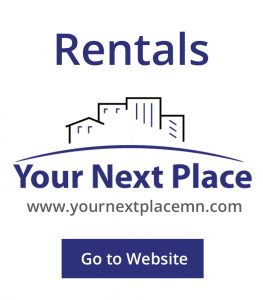Managing rental properties can be a rewarding venture, but it comes with its fair share of challenges. Between tenant communications, maintenance requests, and tracking finances, it’s easy for things to slip through the cracks. Staying organized and efficient is key to running a successful rental business while minimizing stress. Here are five best practices to help landlords keep their operations on track.
1.) Leverage Property Management Software
Gone are the days of juggling spreadsheets and paper files. Property management software offers an all-in-one solution for landlords. These tools allow you to:
- Automate rent collection and reminders.
- Track maintenance requests.
- Store lease agreements and tenant information digitally.
- Generate financial reports.
Popular platforms like Buildium, AppFolio, and TenantCloud streamline operations and save hours of administrative work. Choose one that fits your portfolio size and specific needs.
2.) Create a System for Document Management
Rental property management involves a lot of paperwork, from leases and inspection reports to receipts and tax documents. Organizing these files is crucial for quick access and compliance.
- Go digital: Scan physical documents and store them in cloud-based systems like Google Drive or Dropbox.
- Label clearly: Use standardized naming conventions for files (e.g., “Lease_Apt1_Smith_2024”).
- Back it up: Ensure all digital records are regularly backed up to prevent data loss.
3.) Standardize Tenant Communication
Clear and consistent communication with tenants reduces misunderstandings and improves relationships.
- Set expectations early: Outline communication protocols in your lease agreements, including acceptable response times and methods (email, phone, or online portals).
- Use templates: Create templates for common communications like late rent notices, lease renewal offers, and maintenance updates.
- Track interactions: Maintain a log of communications for reference in case of disputes.
4.) Schedule Regular Property Maintenance
Proactive maintenance helps you avoid costly emergency repairs and keeps tenants satisfied.
- Use a calendar system: Schedule regular checks for HVAC systems, plumbing, and other critical areas.
- Partner with reliable vendors: Build relationships with contractors who can handle repairs promptly and efficiently.
- Document everything: Keep a maintenance log detailing dates, repairs, and costs to track property upkeep.
5.) Monitor Your Finances Diligently
Financial mismanagement can derail even the most promising rental ventures. Staying on top of your income and expenses ensures profitability and helps you prepare for tax season.
- Separate accounts: Use dedicated bank accounts for your rental income and expenses to simplify tracking.
- Use accounting tools: Software like QuickBooks or Stessa can help you categorize transactions and monitor cash flow.
- Plan for the unexpected: Set aside a portion of rental income as an emergency fund for unforeseen repairs or vacancies.
Running a rental property business requires a mix of organization, foresight, and efficiency. By leveraging technology, standardizing processes, and staying proactive, landlords can not only manage their properties more effectively but also enjoy greater peace of mind. Implementing these best practices will set you up for long-term success and happier tenants.


